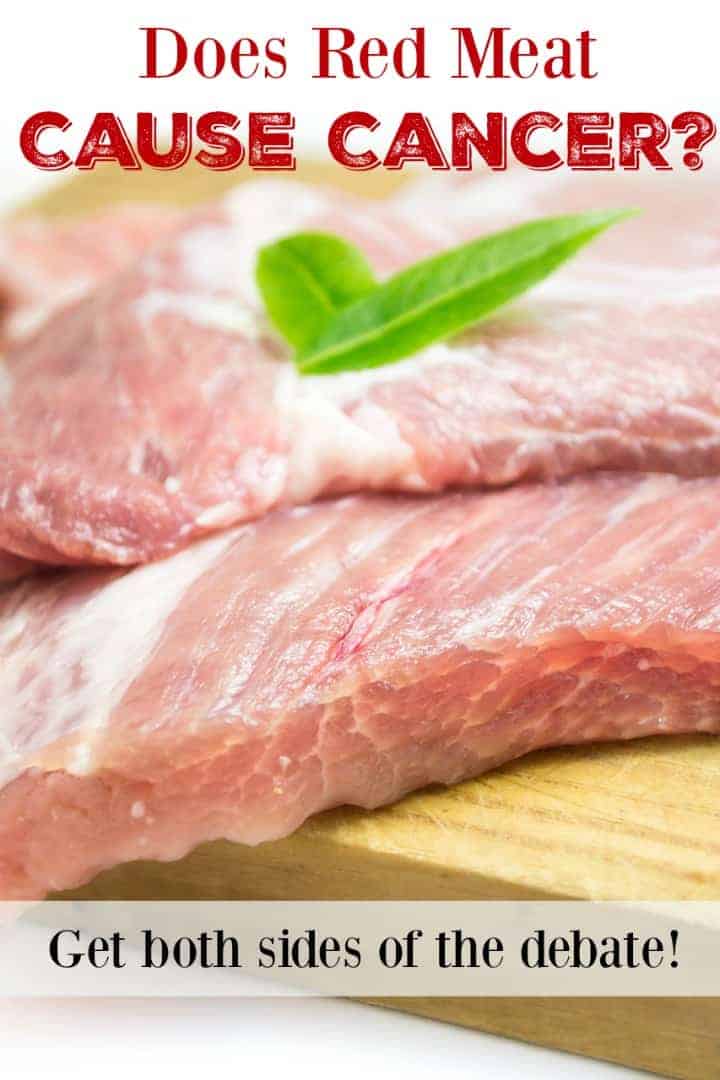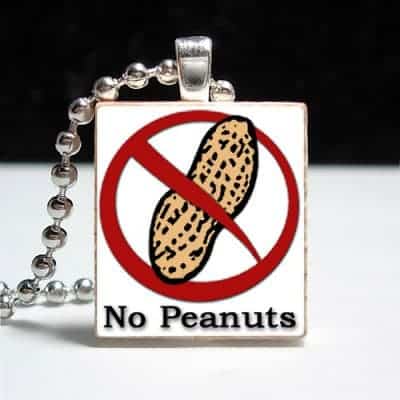The news is abuzz with the latest reports from the World Health Organization: processed meat is a carcinogen and red meat may cause cancer too. The meat industry is completely flipping out and bacon lovers worldwide are crying tears of despair. Hold on there, sad friends! Is this story all it’s cracked up to be? Is there another side here? Can you have your bacon and eat it too? I’ve examined opposing news stories from multiple sources to try to get to the bottom of this. Call it the “Red Meat Cancer Debate” if you will.
Red Meat Cancer Debate: What Does it All Mean?
Before we discuss the red meat cancer scare, we should define red meat, as I often get confused by the term myself. The World Health Organization defines it as: “all mammalian muscle meat, including, beef, veal, pork, lamb, mutton, horse, and goat.” See, I always thought pork was “the other white meat.”
Processed meat, which is under higher attack, is defined as any meat that is “transformed through salting, curing, fermentation, smoking, or other processes to enhance flavor or improve preservation. “ This includes everything from hot dogs to meat-based sauces to your beloved bacon. I’m guessing it even includes my beloved turkey bacon (I don’t eat the real thing).
The story: Red Meat & Processed Meat Causes Cancer
While the news may seem sudden, it’s not. The World Health Organization spent a good chunk of years studying both red meat and processed meats before proclaiming that they may cause cancer. I can’t explain the science behind the process of determining carcinogens, so I recommend checking out this article on the Bloomberg Business website. They did a pretty terrific job of breaking it all down.
It would take pages upon pages to break down and discuss all the different things that went into testing as well as the ins and outs of the results. The bottom line: WHO felt there was sufficient enough evidence to link processed meat to colorectal cancer. It’s now classified as a Group 1 carcinogen, right up there with X and Gamma radiation, plutonium, arsenic and cigarette smoking.
Red meat, however, isn’t so cut and dry. It’s a Group 2A, meaning it is “probably carcinogenic to humans.” It shares a classification with lead, a whole lot of really weird chemicals that I can’t even begin to spell and, oddly enough, hairdressers and barbers. No, your hairdresser isn’t cancerous, being a hairdresser or a barber increases the risk of cancer due to the chemicals they’re exposed to daily.
It’s also important to look at the quantified data (the hard numbers). WHO estimates that for every 50 gram portion of processed meat you eat daily, your risk of getting colorectal cancer goes up by about 18%. They cannot offer hard numbers regarding red meat, but estimate that every 100 gram portion eaten daily could increase your risk by 17%.
Does this mean you have to eat 50 grams (about 2-3 slices of bacon, best I can figure out) every day to see an increased risk? That is a good question! I couldn’t tell you with confidence, though. I think it’s also cumulative, so you couldn’t skip all week, then eat 14 slices of bacon on Sunday and say “well, I didn’t eat it every day!” Don’t quote me on that though.
The Flip Side of the Story
Here’s the flip side: the list of things that can cause cancer is pretty long. Red meat and processed meats join about 475+ other items that may cause cancer. Air pollution is on the same level as processed meats and we’re all exposed to that every day. Also up there in the same category: the average birth control pill and estrogen therapy.
Another important thing to keep in mind: the studies don’t always take other lifestyle choices and environmental factors into account. If you smoke, drink alcohol regularly, work as a hairdresser, and walk to work every day in the city (exposed to pollution) AND eat three pieces of bacon every morning and a steak every night, sure, you’re probably going to tip those scales significantly in cancer’s favor. In that case, it’s hard to say which straw broke the camel’s back, though.
What if you live in a low-pollution town, live an overall healthy lifestyle, drink in moderation, eat your veggies and just happen to enjoy a BLT on Sundays? Is that likely to cause cancer? Who knows? I honestly can’t tell you, because I don’t know why some people get cancer and some don’t. My aunt is one of the healthiest people I know. Last year, she was diagnosed with brain cancer, out of the blue, just like that. The point is, even the World Health Organization admits that the data is still limited.
What’s the Bottom Line?
The bottom line: red meat and processed meats are just the latest things added to the rapidly-growing list of things that MAY cause cancer. MAY being the important word there. Despite billions of dollars of research and scientists working around the clock, it’s scary how little we still know about cancer.
So should you cut out meat entirely? That’s up to you. I do suggest reading the WHO’s fact sheet on the subject, it’s actually pretty fairly written and may help with your decision. If you decide to go meatless, we have some great cheap vegetarian meal ideas to help you out! A personal favorite of mine: the Zesty Orange & Almond Quinoa Salad. Quinoa is packed with proteins, which you’ll need if you give up meat.
I haven’t eaten red meat since I was 14, for personal reasons. However, I let my son make his own food choices and he loves bacon. So I’m in the same boat as you, trying to decide what to do with this information. I’d love to hear your thoughts!
Will you stop eating bacon and other processed meats? How about red meat? Will you cut back at all? Share your thoughts in the comments below!





We will probably never give up red meat. We eat it way too often though. I think almost anything in moderation is okay for you. However, processed things probably are not, yet we eat it for the taste and convenience.
It is sometimes so confusing when we come across news articles like this. I feel like pretty soon, even breathing or drinking water may cause cancer. I think it is just that we must consume everything in moderation.
We eat a lot of meat here. I don’t know if I believe it.
I don’t eat bacon but I try to limit the amount of red meat I eat. It is hard though since my husband would eat red meat for breakfast, lunch, and dinner. And the more processed it is the more he wants it.
It is so hard isn’t it – the more I read the more I get confused about it all – what should we stay away from, what probably isn’t really that bad. x
I’ve been reading so much about this and I don’t know what to think. I have never been a big meat eater but I do enjoy it from time to time.
Hi, Nicole. Here’s a steak for your thoughts ?
I was shocked by the study from WHO. Having watched horror films like Food Inc, I am not shocked at the possible link between processed meat & cancer, but that WHO would take such a strong stance.
Two years ago, I went vegetarian for personal reasons as well. I have since returned to meat, as my changed diet seemed to do more harm than good.
It is known that vegetarians live longer. It is also known that bacon in any form is simply salty deliciousness.
For the majority of folks, no study will change their preferences. I won’t swear off of meat, though I might be more mindful of how processed it is.
Hi Jenn! I agree, I don’t really think the information is going to cause a sudden decline in meat sales. Many people will keep on eating what they like, especially since the data is so new, mixed and a bit confusing in parts.
Did you find that you had any problems going back to meat after two years? I’ve accidentally eaten beef mixed into foods in the past, and even just a few bites before I realized it wasn’t ground turkey was enough to cause discomfort. My body hasn’t had it in 26 years, so I don’t think I could go back to red meat even if I wanted to.